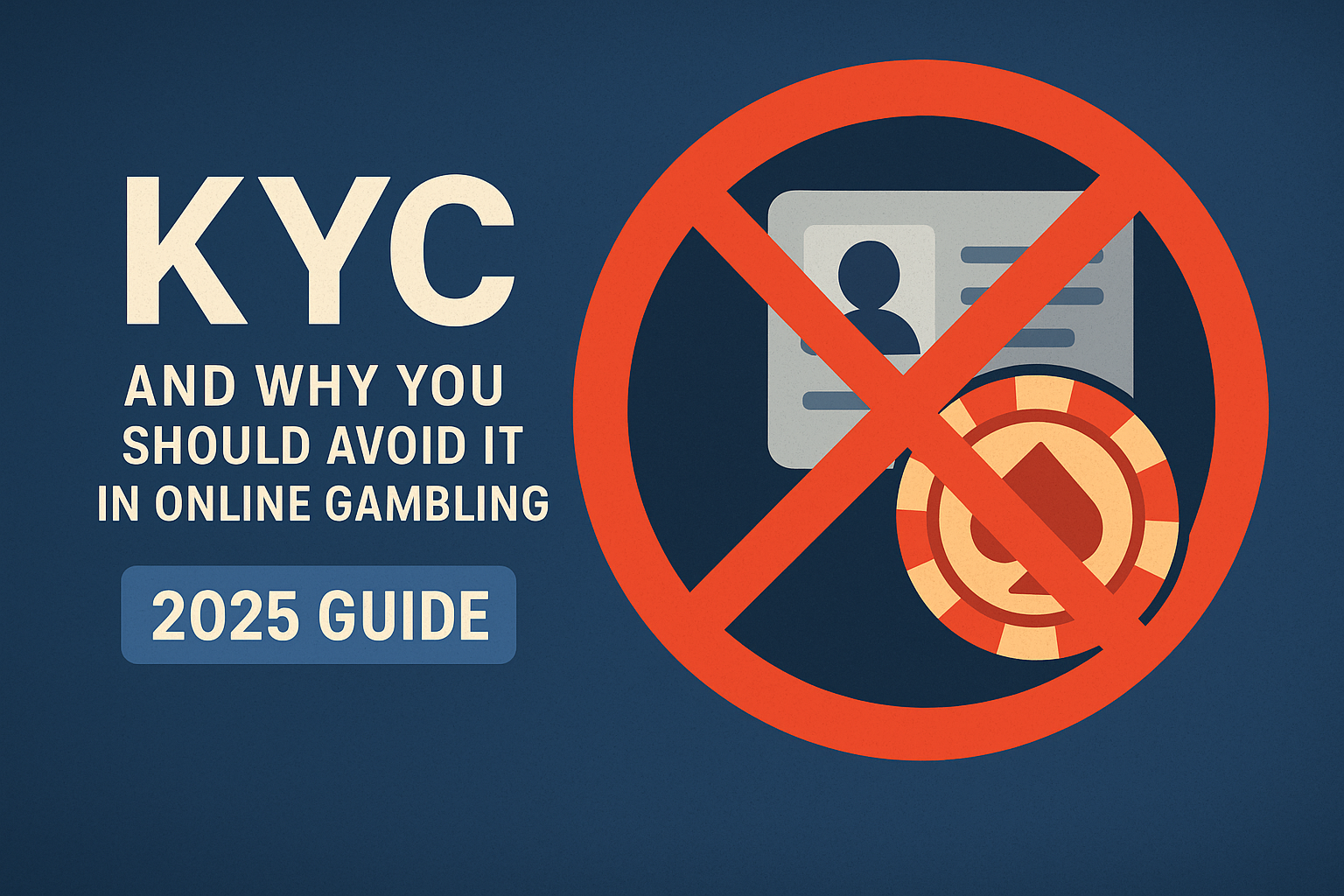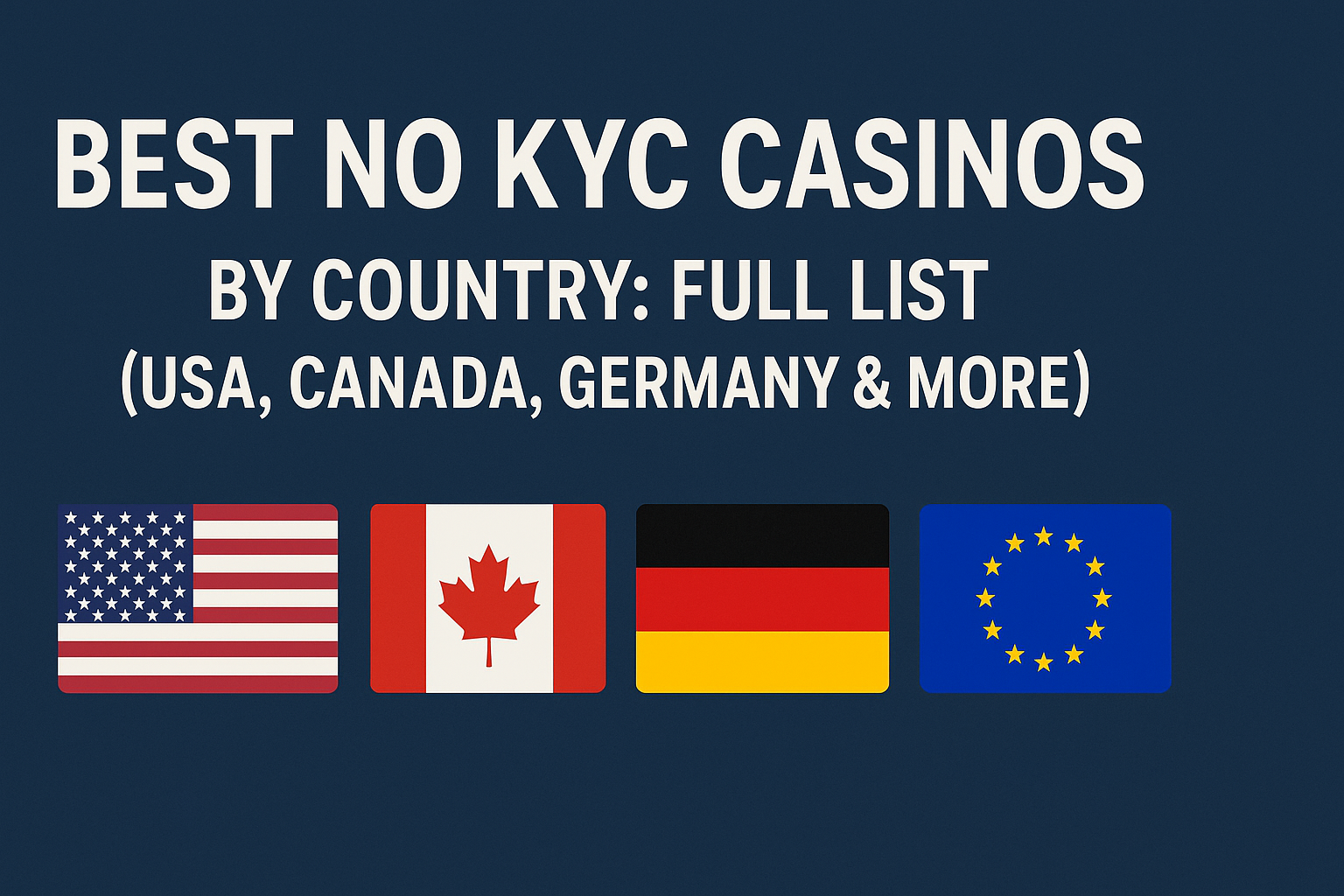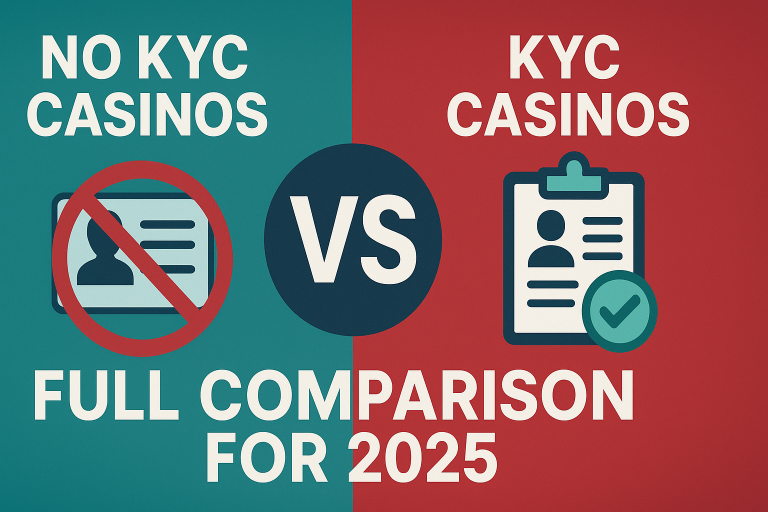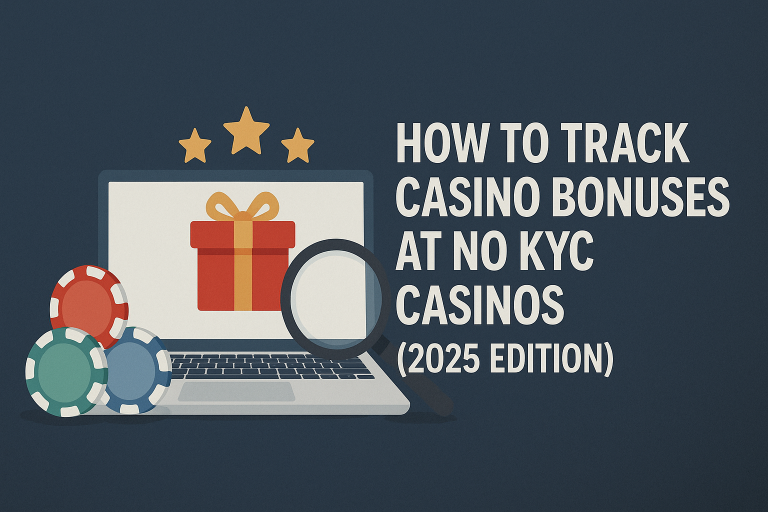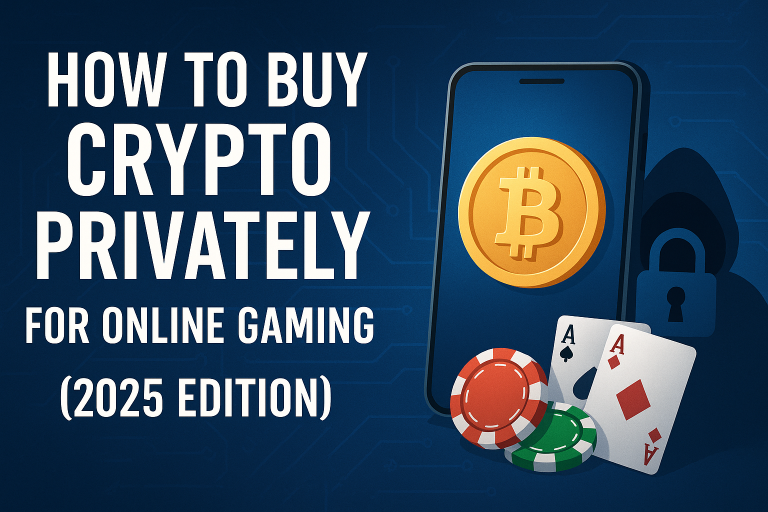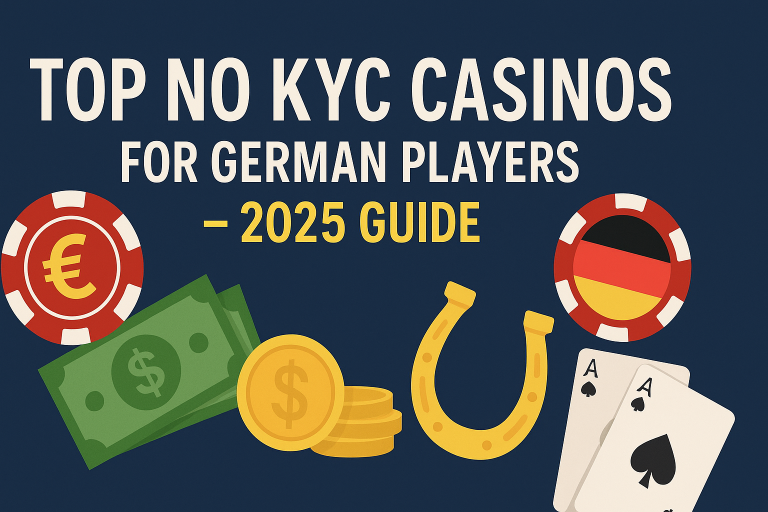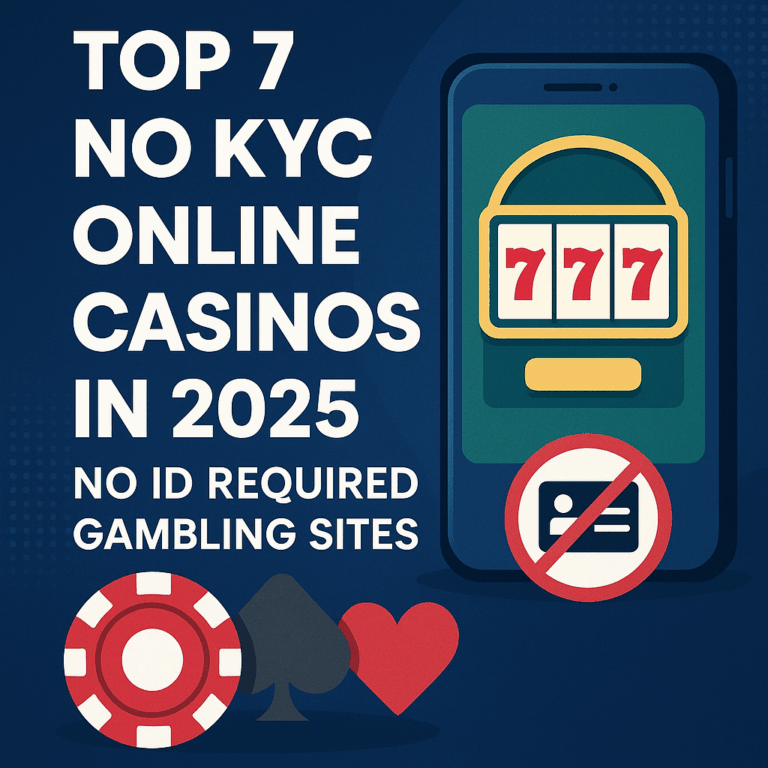🔒 What Is KYC and Why You Should Avoid It in Online Gambling (2025 Guide)
In the world of online gambling, three letters can make or break your experience: KYC.
If you’ve ever tried to withdraw your winnings from a casino and were suddenly asked to upload your passport, utility bill, or a selfie holding your ID — you’ve already encountered KYC.
In this guide, we’ll explain:
- What KYC means in gambling
- Why more casinos are forcing it
- The major risks of KYC
- And most importantly: Why thousands of players are switching to No KYC crypto casinos in 2025
✅ What Does KYC Mean in Online Gambling?
KYC stands for “Know Your Customer” — a financial regulation that requires companies to verify the identity of their users.
In online casinos, this usually means:
- Submitting a passport or driver’s license
- Uploading a proof of address (utility bill, phone bill, bank statement)
- Sometimes even providing a selfie with your document
KYC was designed to prevent money laundering, fraud, and underage gambling — but in practice, it creates massive friction and privacy concerns for regular players.
📉 Why Online Casinos Enforce KYC
Online casinos that accept fiat money (like credit cards, Interac, bank transfers) are usually licensed by strict regulators (e.g., Malta, UKGC, Ontario AGCO). These licenses require full KYC verification — often before you can withdraw.
Casinos are also pressured by:
- Anti-Money Laundering (AML) laws
- Payment processors
- Banks and acquirers
- Tax regulators (especially in EU/US/Canada)
To stay compliant, they apply strict verification protocols — even on small players.
🚫 Why You Should Avoid KYC Casinos
If you’re not laundering money or committing fraud, why should you care about KYC?
Because KYC:
1. 🕵️♂️ Destroys Your Anonymity
You’re linking your full identity (name, DOB, address) to every bet you make. This info is stored — sometimes poorly protected — by third-party platforms.
2. 🔓 Increases Risk of Data Leaks
Casinos are hacked regularly. Your personal documents can leak onto the dark web — leading to:
- Identity theft
- Fake bank accounts
- Fraudulent loan applications
- Phishing attacks
Real-world example: Several major casinos like MGM and BetUS have suffered data breaches affecting millions of players.
3. 🏦 Flags Your Bank or Tax Profile
Once your real name is tied to casino transactions, it becomes visible to:
- Your bank (suspicious activity alerts)
- Tax agencies (CRA in Canada, IRS in the US)
- Credit rating agencies (yes, really)
Many countries now treat gambling winnings as taxable income — especially if tied to your name.
4. ⛔ Blocks or Delays Withdrawals
KYC is often used as an excuse to delay or deny payouts.
- “We need to verify your documents.”
- “Your selfie was not clear.”
- “Your utility bill is older than 3 months.”
Countless players report frozen accounts or confiscated winnings — simply because they failed or refused KYC.
5. 🔄 KYC Terms Can Change Anytime
You may register, deposit, and win money without needing KYC… until the moment you request a large withdrawal.
At that point, they hit you with KYC — and block your funds until you comply.
💸 Real KYC Horror Stories
- A Canadian player won $4,000 at a licensed casino — only to be told their ID was too blurry, delaying payment for 3 months.
- A user on Reddit shared that after uploading documents, their account was locked for “inconsistencies.”
- In one case, a casino requested a video call to verify the user, only to refuse the withdrawal after all.
All of this happens even with legal, regulated casinos.
✅ The Solution: No KYC Crypto Casinos
To avoid all of the above, players in 2025 are switching to No KYC casinos, where you:
- Sign up with just an email (or no account at all)
- Deposit using Bitcoin, Ethereum, USDT, etc.
- Withdraw anonymously to a private wallet
- Never upload a single document
These casinos operate on crypto-only systems and are usually based offshore (e.g., Curacao, Panama, Costa Rica), outside of strict financial regulation zones.
🔥 Advantages of No KYC Gambling
| Feature | KYC Casinos | No KYC Crypto Casinos |
|---|---|---|
| Requires ID | ✅ Yes | ❌ Never |
| Risk of data leaks | High | Minimal |
| Deposit speed | Slow (bank delay) | Instant (crypto) |
| Withdrawal speed | Up to 5 days | 5–30 minutes |
| Geo-blocked | Often | Rare |
| Accepts Canadians/US | Limited | ✅ Yes |
| Tax risk | High (linked ID) | Low (no traceable data) |
🛡️ Is No KYC Gambling Legal?
In most countries, including Canada, the US, and the EU, using a No KYC offshore casino is not illegal — it simply falls outside of regulated territory.
You’re responsible for declaring your winnings, but you’re not breaking laws by playing anonymously.
🧠 Always check local laws. But know that millions of users use VPN + crypto to access offshore gambling daily.
💼 Who Should Avoid KYC?
- Crypto gamblers who value privacy
- Whales/high rollers who want fast withdrawals
- Digital nomads gambling across borders
- Users in restricted countries (US, CA, Germany, etc.)
- Anyone who doesn’t want to risk a data breach
🧠 Final Tips to Stay KYC-Free
- Use VPN (Mullvad, NordVPN, Surfshark)
- Deposit with anonymous crypto wallet (Samourai, Exodus, Phoenix)
- Withdraw to clean wallet address, not an exchange
- Avoid posting wins under real name/email
- Stick to reviewed, licensed No KYC casinos
🏁 Conclusion
KYC may be “normal” in 2025, but that doesn’t make it safe. If you care about your privacy, identity, and control over your money, it’s time to ditch traditional gambling platforms and embrace No KYC casinos powered by crypto.
You deserve to play without being tracked, profiled, or forced to upload your passport just to get what’s yours.
🎲 Go private. Go crypto. Go No KYC.
🔍 Related Keywords
- what is kyc gambling
- why avoid kyc casinos
- kyc risks online
- crypto casino no verification
- how to gamble without ID
- bitcoin gambling without kyc
